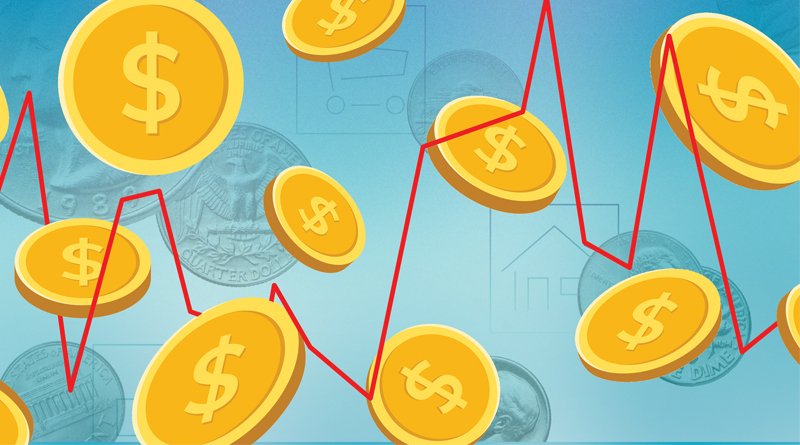“We Are On The Verge Of An Economic Growth, Not A Recession”
For economist Ivan Jimenez, the stock growth rate projections indicate that there will not be a sharp recession in the short term.
By: Edda Pujadas
“I believe that we are on the verge of economic growth, instead of a recession”. This is according to economist Ivan Jimenez, who believes the US economy has shown tremendous resilience.
Just days before the start of 2023, we spoke with the experienced economist Ivan Jimenez, who has a very positive outlook for the coming year, considering that the United States has a labor sector strength that is the envy of the world and has even surprised those who steer the course of the country’s economic well-being through the Federal Reserve.
Analyzing 2022, Jiménez states that the US Federal Reserve has two mandates: controlling inflation and stimulating total employment. “What we have seen in recent months is a Federal Reserve that has increased interest rates to reduce the speed of inflation.”
“That speed that is trying to reduce is sensitive to sectors where interest rates have a direct impact, such as automobiles, real estate, and credit consumption. When the Federal Reserve increases interest rates, it is sending a message of direction and thought regarding the economy because what we were seeing was too hot and fierce a warming that had to be cooled.”
Jiménez recalled that we had suffered a failure in the delivery of products, and in the ports, there were ships full of cargo, but that they were really there due to inefficiency in logistics. The Federal Reserve began to see this with concern and was added that, between January and February 2022, the Soviet Union intervened in Ukraine.

“The situation in Ukraine makes the price of fuel distort and, therefore, of basic items, and that is when the Reserve Federal decides to raise interest rates as the only alternative to control the speed of inflation,” Jiménez said.
Jiménez clarifies that inflation is not only in the United States, “it is a rampant problem worldwide, not an issue of one jurisdiction, but it also is global, and logically, the solution is global and has several facets. The most important of them is that basic items, such as oil, natural gas, and components that go into production machinery, have all dropped.”
Jimenez asserts that if the prices of these products remain below the prices they spiked, it will indicate that the US economy will continue to grow and the rate of inflation will decrease.
“The economic indicators have two major players,” Jimenez adds, … “what happens in the realm of interest rates and what is seen in the global stock markets. In this sense, the interest rate (where 75% of the world’s wealth) indicates that we are walking towards a decrease over the next ten years, and on the other hand, the stock market growth projections are showing that there will not be a sharp recession.”
According to Jimenez, it does not seem like we are heading toward a recession as we have thought; on the contrary, there will not be a recession. “Let us remember that we are in a situation that is not the result of a traditional industrial cycle, but rather we are where we are as a result of the global impact of COVID-19.”
The basic categories surged, and the consumer had purchasing power and employment options. This scenario is added to the other pillar of the global economy, the Chinese factory worker, as well as the 2 trillion dollars in US savings and the Infrastructure Stimulus Law coming into effect in 2023. This all leads to growth, not recession.
There is still a lot of consumption that is not present due to a lack of products, but this is improving in all sectors, and this December, Christmas sales will increase, and that will re-stimulate the economy.
And according to Jimenez, the decrease in economic activity is not due to a lack of demand but labor inefficiency. There are not enough workers in any of the sectors; for example, there is only a shortage of 60 thousand educators in the state of Florida.
Resuming the topic of inflation, Jiménez mentioned that inflation rates are comparable year after year, and the inflationary growth we had in 2022, we won’t have in 2023. “For example, residential rents won’t increase by 30% from 2022 to 2023, but they did increase from 2021 to 2022. They will continue to rise, but not at the same speed.”
About the stock market, Jiménez pointed out that since the Second World War, every time a recession is anticipated, the stock market has a slide of 30% to 32%, and the stock market has already experienced a reduction of 30%.
“There is also an important demographic change, the so-called Baby Boomers, with ages between 58 and 76 years old are retiring, and now the Millennials who are between 23 and 38 years old, that had deferred their economic activity, but now they are becoming active.”
Jimenez mentioned, likewise, the importance of the Latino community. “A recent study from Stanford University indicates that 50% of economic growth in the United States came from the workforce of Latin American immigrants, so we are seeing many advances in terms of social progress.”
“From my point of view, the strength of the American economy has not even been revealed. I bet on the resilience of the United States and its entrepreneurial strength. That is what makes the difference for 2023.”

